Kelly Massey, Director of the Early Childhood Center
One of the first big decisions that parents make for their children is what preschool to send them to. We’ve heard over and over about young children’s right to “Quality Early Childhood Education.” This leaves many parents and policy makers to wonder what “quality” early childhood education looks like and how to measure it. Parents without a background in education or child development often spend weeks researching and touring preschool programs looking for the right one, but not sure what exactly they should be looking for. Some of it boils down to school culture, parent work schedules, and geography, but there are several key qualities that are universally important in a good early childhood program.
Preschool teachers often say that “the environment is the curriculum.” Research has shown that any quality early childhood program is rooted in play, and quality play experiences are made possible by a rich, open-ended environment. Look for beautifully organized classrooms that are abundant in materials like blocks, art supplies, and natural materials. Any good early childhood program will capitalize on children’s play instinct to create engaging learning moments with toys, materials, and other children. Whether children are setting up a ramp system in the construction area or feeding a baby doll in the dramatic play area, while in play, children are making important learning connections that they should not be denied. Beware of classrooms that are heavy in toys and materials that can only be used one way, such as puzzles with only one solution, dramatic play areas that are limited to home-life, and blocks that can only be put together in one way.
Preschool children are in the process of learning how to learn. A great preschool program will nurture children’s thinking and reasoning skills rather than focusing on “academics” like worksheets and memorization. The early neural connections made during creative, open ended play with peers, and reflective conversation with adults will serve them better long-term. Filling out worksheets or counting plastic manipulatives are activities that produce short term results but are very limiting to children’s thinking. All children will all learn their colors, shapes, letters and numbers, but preschool children are ready to think much bigger than that. They are really ready to create and test theories about the natural world, push their engineering skills through building the tallest skyscraper in the block area and think through complicated scenarios in the dramatic play area.
Look for art experiences rather than projects when you explore the walls of a preschool you might be touring. In the same way that children can think much bigger than worksheets, they are also able to express complex thoughts and ideas through art mediums like clay, watercolors, sewing, and pastels. If you see a wall of nearly identical art pieces, this should be a red flag to you as a parent. A quality early childhood program will offer children expressive materials and teach them the best ways to use them, rather than having everyone create a starry sky with crayon-resist or cut out triangle eyes and mouth for a jack o ‘lantern.
Caring and professional caregivers are at the very heart of a good preschool program. Before choosing a preschool program, ask about the schooling and experience of their faculty. An educated faculty is important, but more important are the interactions that you see between the teachers and the students. Are the teachers talking to children at their own level? Are they engaged in what the children are doing and asking good questions as the children work? If the administration and faculty do not project a deep respect for young children, their ideas and their development, I recommend that you find a different program.
As we all know, a happy childhood is one of the best ways to a successful adulthood. When you look around at a potential program, do the children look engaged and happy? Does the space look welcoming and warm? Do the teachers themselves look as if they enjoy their jobs? Not every day of preschool will be pure bliss; kids are working very hard through social dynamics, friendships, and developmental jumps and delays. Overall, however, the preschool you choose should feel like a place that you would feel comfortable spending time in. There should be cozy spaces, and exciting spaces. It should be beautiful and convey that the children are, in this place, the center of the world.
Schedule a Tour
We invite you to come and witness the magic that makes up WNS and its thriving community in person. Register online and book your spot on the next tour.





